What Is a Down Payment?
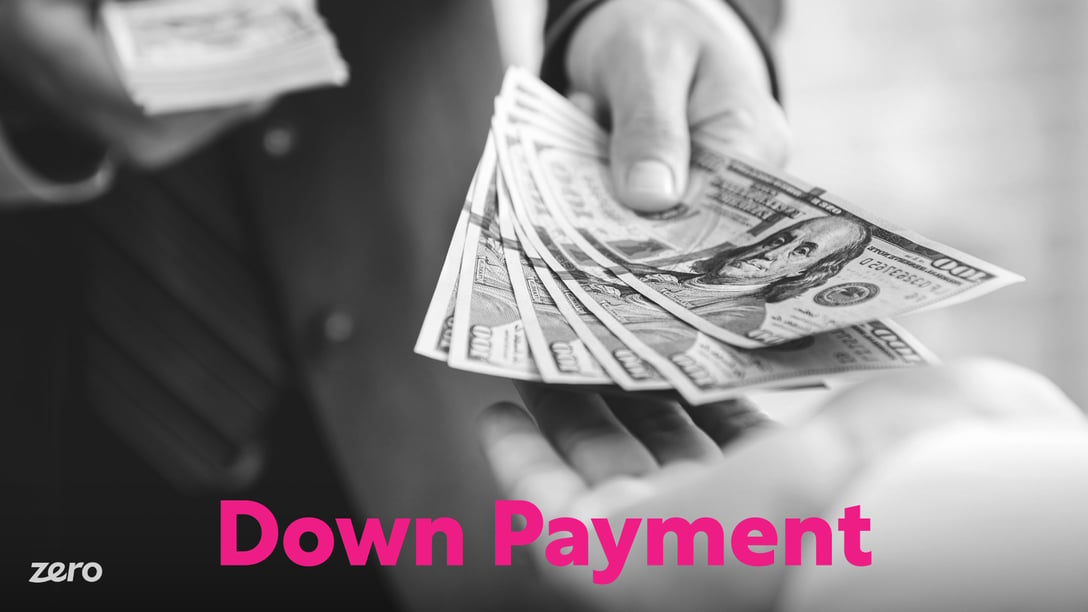
There’s a lot of expenses to keep in mind when you’re thinking about buying a home. Between the price of the home, property taxes, your mortgage payments, insurance, and any additional commute expense, your brain may feel like a calculator! One of the largest expenses when purchasing a home is one that isn’t always front and center on your mind, and that is the down payment.
What is a down payment? Simply put, a down payment is an amount of money the buyer pays during the initial phase of the homebuying process, which is equal to an agreed upon percentage of the home’s total purchase price.
Read our beginners' guide to mortgages here!
How Do Down Payments Work?
Down payments are a requirement for most types of loans. Down payments work by reducing the overall amount of your loan. For instance, if the home you’re looking to purchase is $300,000, and you put down a 10% down payment, you only need to finance $270,000.
Down payments also influence various terms of the loan, such as the interest rate, monthly payments, and mortgage insurance.
Mortgages come in a variety of shapes and sizes, learn about the different types here!
Interest Rates
The interest rate is essentially the fee a mortgage lender charges the borrower for using their money. A larger down payment reduces the lender's risk associated with lending any borrower money. Not only does a larger down payment mean the lender is lending less money, they also like to see the stake the borrower has in the property.
If you were to put down a 20% down payment, you’ll likely have a better interest rate than if you put down 5%. Interest rates are throughout the entire duration of a loan. Any time you can reduce your interest rate, you have the opportunity to save a lot of money over the duration of your loan!
Monthly Payments
The less money you borrow, the less money you’ll have to pay back. As a result, your recurring monthly payment will be less. The below chart can help visualize this concept, on a high level. Note, this chart only highlights the principal balance of the loan and does not factor in taxes or insurance.
|
Price of Home |
$300,000 |
$300,000 |
|
Down Payment |
10% |
3.5% |
|
Loaned Amount |
$270,000 |
$289,500 |
|
Years of Loan |
30 year mortgage |
30 year mortgage |
|
Months of Loan |
360 months |
360 months |
|
Monthly Payment |
$750 |
$804 |
Mortgage Insurance
If you don’t put down a 20% down payment, many loans will require you to carry Private Mortgage Insurance, or PMI. Private mortgage insurance protects the lender, not the homebuyer. In the event you default on your loan, the private mortgage insurance company will pay your lender so the bank doesn’t lose money.
As the homeowner, you’ll still face financial consequences and can lose your home. This insurance is designed to reduce the banks risk of lending, which in return, allows more people to obtain a mortgage. However, PMI can be expensive, and will certainly add to your monthly payment.
Down Payment Amount
There is no silver bullet on how much down payment is needed for a house. Various mortgages require a specific amount of money down. For instance, a homebuyer who chooses to finance through an FHA mortgage can buy a house with as little as 3.5% down. On a $300,000 home, that's a $10,500 down payment. There are pros and cons to putting down a large, or small, down payment.
We wrote a whole blog just about mortgage fees and closing costs, read it now!
Benefits of a Large Down Payment
A large down payment has undeniable benefits. First and foremost, the more money you put down on your home, the less money you have to finance. Financing comes with an interest fee, and when this interest fee is extrapolated over the lifetime of a loan, it certainly adds up. Higher down payments can reduce your interest rate as the lender has to lend less money - making the loan less risky in their eyes.
A larger down payment won’t only save you money on the interest side of the equation, you may be able to save money on insurance as well. Putting down 20% or more allows you to avoid paying Private Mortgage Insurance, or PMI. This can save you hundreds, or thousands, of dollars per month.
Additionally, your debt-to-income ratio, also known as DTI, will be lower. A debt to income ratio is important in much of the lending world, as this ratio looks at how much debt you have in relation to your overall income. Typically, if your DTI ratio is too high, you will not qualify for loans, whether that be a car loan, renovation loan, etc. If you put more money down on your home, you’re in less debt, which can help keep this ratio healthy for the other expenses in life.
Benefits of a Small Down Payment
Putting a large down payment on your home can be challenging. Despite the benefits a large down payment has, there are also benefits to putting down a less amount.
Instead of paying a landlord, or living at home for a longer period of time, you may be able to purchase a home sooner rather than later if you put down less money. Saving up 3.5% of the purchase price on a home is a lot easier than saving up 20 percent.
If you chose to put down less of a down payment and kept some money in cash, you can use that cash for home repairs and improvements. You may be able to redo the kitchen, add a deck, or finish the basement. These improvements may mean a lot to you, and can also increase the value of your home.
Last, but certainly not least, you can keep money secured for an emergency fund. There is a great deal of responsibility when it comes to owning a home, and as a homeowner, you need to plan accordingly. Having a 3 month supply of money in an emergency fund is recommended by many financial experts. Therefore, you can continue to pay your bills in the event you weren’t able to work.
How to Buy a House With No Down Payment
Various loans have different down payment requirements. Let’s dive into some of the most common below.
Conventional Loans
The vast majority of conventional loans will require a down payment of 5 to 20 percent. If you happen to put down 20%, no mortgage insurance is required. Although possible, it is rare to find a lender who issues conventional loans with a down payment less than 5 percent. Typically, conventional loans have more strict credit and financial requirements for their borrowers.
FHA Loans
An FHA mortgage is a mortgage that is backed by the Federal Housing Administration. This is a common option for many first time homebuyers for two main reasons. The first reason being, the FHA does not have as strict of a credit score requirement. The second reason is, you can purchase a home with as little as 3.5% down. If your credit score is at least 580, all you need to put down is 3.5%. If your credit score is between 500 and 579, you’ll be required to do a 10% down payment.
USDA Loans
The United States Department of Agriculture provides homeowners in select areas the ability to finance a home through this program. There are certain requirements one must meet to qualify for a USDA home. However, those that do qualify enjoy the fact that a down payment is not a requirement. You can purchase a home with $0 down.
VA Loans
VA loans are made possible through the Department of Veteran Affairs. These loans are exclusively for veterans of the United States Armed Forces, or their qualified spouse. One of their main attraction pieces are, those who use a VA loan to purchase a home do not need to make a down payment. That’s right, you can keep all that cash in the bank and spend it as you please!
Our Mortgage Learning Center features blogs on a wide range of mortgage and refinancing topics.
Put It All Together
Unquestionably, there are a lot of expenses to keep in mind whenever you are thinking about purchasing a home. Of which, the down payment is one of the most important. How much money you put down at closing will directly impact how much money you pay each month. Some borrowers wish to put down a greater down payment to reduce their monthly payment for the duration of the loan.
Other borrowers elect to put down a smaller down payment, often adhering to the minimum amount. Therefore, they can keep more cash in the bank for whatever other expenses life throws at them! The choice is entirely up to you. There is a compelling case to do either option.
Ready to Make a Down Payment?
This page last updated: October 11, 2022
Read more on this topic below.

When you buy a house and start making mortgage payments, your payment consists of four different components, known...

If you have gone through the pre-approval process but need to take a deeper dive into how much house to buy,...

The vast majority of mortgage loans require you to put down a certain percentage of the selling price upfront....

Whether you’re a first-time buyer or you’ve purchased a home before, you’ve likely heard of a homeowner’s association....

People buy their homes for a number of reasons. Affordability, stability, and comfort are some of the most...

Mortgage brokers play an integral and active role in the mortgage market, offering customers a service not made...

Conventional loans are mortgages offered by private lenders, banks, and institutions that are not backed by the government. Unlike FHA, USDA,...

Some homebuyers refuse to purchase a property if it is part of a property owner association. On the...

Research indicates that 58% of homeowners in HOA communities and single-family homes pay an average monthly fee...

Private mortgage insurance is something millions of homeowners pay for each year. However, this type of insurance does not protect

When you first set out to buy a home, it can feel like you’re taking an exam you forgot to study for. You have to make quick...

When looking to refinance or buy a house, the pre-qualified vs pre-approved mortgage debate can be...
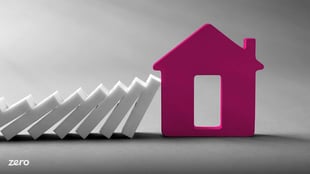
A home doesn’t just fall into foreclosure status. There are stages and processes that take place behind the scenes before...

It’s likely that your mortgage loan will be the largest loan you have during your lifetime. Mortgages are not a one size...

For many people, owning a home is part of the American dream. To make this dream a reality, most people will take out a...

Whenever you’re looking to buy a house, you’ll quickly realize there are a lot of fees associated with obtaining a mortgage....
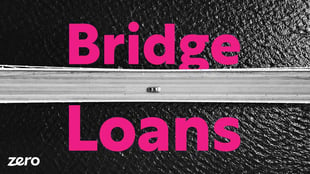
A bridge loan is a short-term loan a borrower may use while a more long-term financing contract is finalized. Bridge...

A loan estimate is crucial to obtain when looking for a loan. This estimate not only gives you the details of a mortgage but also compares offers...

There are many moving parts and various people you’ll deal with throughout the homebuying process....

If you’re looking to buy a house, and do not have a mountain of cash saved up, you’ll need to consider getting a mortgage to help you finance this...
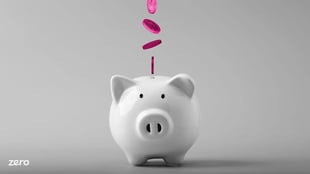
If you find a property that you’re highly interested in buying but are concerned that the seller might choose...
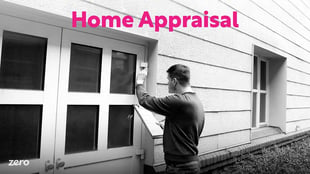
Buying a home? You’ll likely need to get it appraised before you receive the clear to close. If you’re wondering...

If you’re an active service member, a veteran, or the surviving spouse of a veteran, and you want to ...

There’s no doubt, COVID-19 changed the world in countless ways and took us all by surprise. From an...

Whenever you are borrowing money, whether it’s for a new mortgage, a refinance, credit card, or car loan, you’ll hear...

If you’re new to buying a home, you probably have quickly realized the overwhelming amount of options there...

If you’ve already gone through the lengthy process of writing offers, securing financing, and arranging inspections for your...

One of the most important steps to buying a home is deciding on a mortgage loan and deciding on a loan involves settling on a good...

First time home buyers are often surprised when they learn about all of the expenses that are associated with ...

Purchasing real estate is not as simple as finding the right home, submitting an offer, and signing the closing paperwork; many...
